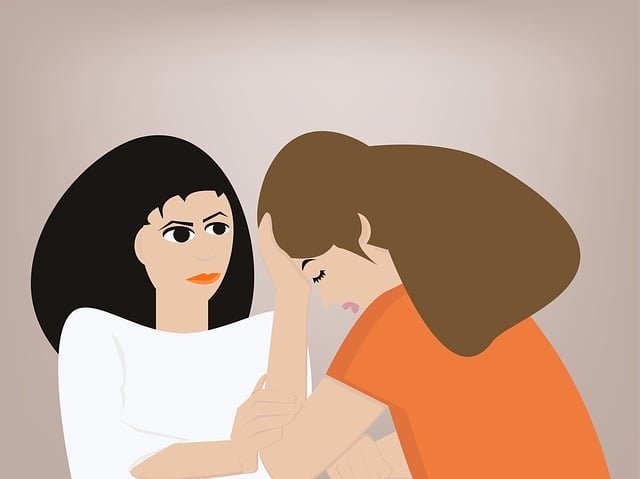Littleton Abuse Survivors Therapy (LAST) addresses the significant barrier of stress in healing for survivors of abuse, offering specialized support through self-awareness exercises and mental wellness journaling. LAST equips individuals with tools to manage emotions, increase resilience, process trauma, and reclaim control over their lives. By integrating evidence-based practices and promoting self-care routines, education supports emotional well-being. Techniques like social skills training, mindfulness exercises, and cognitive reframing help manage stress. LAST fosters a supportive community through peer support and cultural sensitivity, enabling members to face challenges with enhanced resilience and confidence.
In the heart of Littleton, survivors of abuse often face unique challenges, with stress playing a significant role in their healing journey. This article explores evidence-based stress management techniques tailored for this community. We delve into the profound impact of education and its power to equip individuals with effective coping strategies. From practical exercises to supportive communities, these strategies foster resilience and continuous healing for Littleton abuse survivors. Discover how access to therapy can revolutionize their lives.
- Understanding Stress and Its Impact on Survivors of Abuse in Littleton
- The Role of Education in Equipping Individuals with Coping Strategies
- Practical Techniques for Effective Stress Management
- Creating a Supportive Community for Continuous Healing
Understanding Stress and Its Impact on Survivors of Abuse in Littleton

Stress is a prevalent and powerful force among survivors of abuse, particularly those in Littleton who have endured traumatic experiences. Understanding its impact on this community is essential for providing effective support and therapy. The aftermath of abuse often leaves individuals grappling with heightened anxiety, fear, and a constant state of hypervigilance, making it challenging to navigate daily life without feeling overwhelmed.
Littleton Abuse Survivors Therapy focuses on helping these individuals recognize and manage stress as a crucial step in their healing journey. Self-Awareness Exercises and Mental Wellness Journaling Exercise Guidance can empower survivors to identify triggers and develop inner strength. By fostering mental wellness, these techniques enable them to build resilience, process trauma, and reclaim control over their lives, ultimately breaking free from the cycle of stress and its detrimental effects.
The Role of Education in Equipping Individuals with Coping Strategies

Education plays a pivotal role in equipping individuals with effective coping strategies to manage stress and navigate life’s challenges. By incorporating evidence-based practices into teaching curricula, schools can foster an environment that promotes emotional well-being. One such approach is Littleton Abuse Survivors Therapy (LAST), which focuses on building inner strength and resilience among survivors of trauma or abuse. Through LAST, students learn valuable tools to process difficult emotions, enhance self-awareness, and develop healthier coping mechanisms.
Furthermore, education provides a platform for encouraging the adoption of self-care routines, which are essential for maintaining better mental health. Teaching individuals how to prioritize their well-being can significantly reduce stress levels and improve overall lifestyle choices. Crisis intervention guidance is also valuable in equipping students with immediate strategies to handle high-stress situations, ensuring they have the resources needed to maintain stability and seek additional support when necessary.
Practical Techniques for Effective Stress Management

Learning practical techniques for effective stress management is a valuable tool, especially for those who have experienced trauma, such as Littleton Abuse Survivors Therapy clients. Social Skills Training and Coping Skills Development play a pivotal role in this process. By teaching individuals strategies to identify and manage their emotional responses, these programs empower them to confront stressors head-on. Techniques may include mindfulness exercises, deep breathing, progressive muscle relaxation, or cognitive reframing, which have all been proven effective in reducing anxiety and promoting a sense of calm.
Through regular practice, these coping skills become second nature, enabling individuals to navigate challenging situations with greater resilience. The goal is not to eliminate stress entirely but rather to help people develop healthy responses that foster emotional well-being. Incorporating these strategies into daily routines can significantly enhance one’s ability to cope and improve overall quality of life, particularly for those navigating the complexities of trauma recovery.
Creating a Supportive Community for Continuous Healing

Building a supportive community is an integral part of continuous healing, especially for individuals recovering from trauma and abuse like those served by Littleton Abuse Survivors Therapy (LAST). Creating safe spaces where individuals feel understood, accepted, and empowered fosters a sense of belonging that strengthens their resilience. This community can be extended beyond the therapy setting through peer support groups, online forums, or social events, enabling ongoing connection and encouragement.
Cultural sensitivity and confidence-boosting strategies play significant roles in this process. Mental health professionals should incorporate cultural awareness into their practices, ensuring every member of the community feels seen and respected. By implementing effective risk management planning, therapists can create a secure environment where individuals can freely express their experiences, fears, and progress without fear of judgment or further trauma. This holistic approach enhances healing and empowers individuals to navigate life’s challenges with newfound confidence.
Effective stress management techniques teaching is a pivotal component of supporting survivors of abuse in Littleton. By equipping individuals with practical tools and fostering a supportive community, we enable them to navigate the healing process continuously. The combination of understanding stress, employing coping strategies, and creating safe spaces significantly enhances their resilience and overall well-being. Through Littleton Abuse Survivors Therapy, education becomes a powerful tool for personal growth and recovery.














